A Tale Of Two Tweets
On the off-chance you haven’t heard the term “the main character of Twitter,” it’s a simple way of describing the experience of posting something — or being posted about — on Twitter and having that snowball into a trending topic. The term comes from a 2019 tweet by the user @maplecocaine, who wrote, “Each day on twitter there is one main character. The goal is to never be it.”
The main character effect isn’t unique to Twitter. It happens on Tumblr, on Reddit, probably on Pinterest? But the speed and ferocity and, most importantly, the irl impact of becoming a main character on Twitter is unparalleled. Caught the attention of an angry mob on Tumblr? Maybe avoid Hot Topic’s and Twenty One Pilot shows for a while. Caught the attention of Twitter? You’ll absolutely end up with a New York Post article (or multiple) being written about you at the bare minimum. You’ll also almost certainly lose your job — though, you may end up with a better one. It’s a real crapshoot.
Elon Musk’s takeover of Twitter can be viewed through a bunch of different prisms. There’s the theory that he’s just a bored idiot. He might also genuinely think it could become the content feed that links humanity together as we traverse the cosmos. But you could also view Musk’s tenure at Twitter as a concerted effort from Silicon Valley’s elite at, if not reigning in the main character effect, trying to harness it. Before Musk, anyone could become a main character — world leaders, actors, activists, random teenagers. And, after Musk, that’s still true, but the scales have been significantly tipped and this month there were two main character incidents that illustrate this perfectly.
On August 20th, a freelance writer named Bailey Herdé vented on Twitter about the agony of trying to make small talk with people who don’t reciprocate. “Sorry if this is rude or whatever but I really hate people who refuse to endure even the tiniest bits of small talk. Can’t tell you how many times I’ve walked up to a table at work and said ‘how are you doing today’ only to be met with complete silence and a blank stare.”
Herdé’s tweet has been shared over 5,000 times and I’m comfortable saying almost every single reply to it is bad. As podcaster Michael Hobbes wrote, “The platonic ideal of a Main Character tweet: A reasonable, low-stakes gripe about a relatable situation... and 10,000 people in the replies making up scenarios so they can call her a terrible person.” If you don’t feel like clicking over, the (incorrect) consensus was that Herdé was being ableist. But most crucially, Herdé is not verified, which means she is not eligible for Twitter Blue, or whatever it’s called now, and will not get any money from the seven million “views”-worth of harassment she has received for her extremely innocuous post.
A week later, a user named Jash Dholani posted a tweet about the differences between “good art and bad art”:
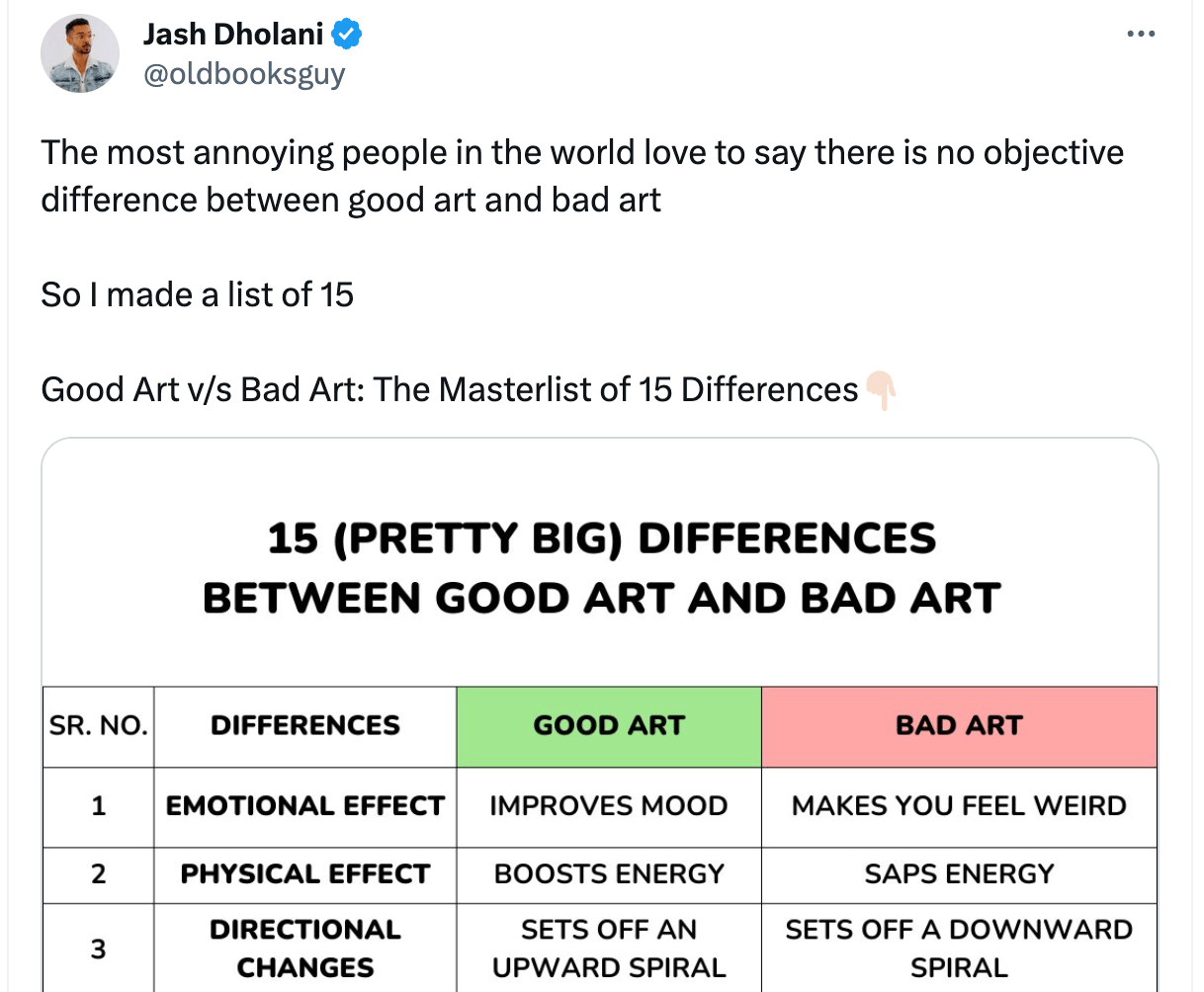
Dholani’s tweet has been “viewed” about the same amount as Herdé’s tweet, though, it only has 100 actual shares, and over 5,000 quote tweets telling him that he’s a moron. He also turned his tweet into a lengthy thread, where he ranted about how communists and progressives mistakenly think psychiatric medicine is important and can’t appreciate classical beauty.
Also, not only does Dholani have a Substack link in his bio that is assuredly picking up subscribers right now, he’s verified on Twitter, which means, at least in theory, he’s profiting off of all of this. He’s even bragging about it, writing, “Oh I see communists with pronouns and mental illness in bio furiously replying to my post...earning me Elon Bucks with every passing minute.”
In many ways, Musk, through Twitter’s ad revenue share, has made the implicit social consequences of being a Twitter main character explicit. Before Musk, people who went viral for controversial activity were benefitted by it if they fit into existing structures of business, politics, or media, and would thus receive some kind of financial compensation. And those who did not, didn’t. If you were cisgendered and white with a photogenic face, you’d be given an Ellen Show or Tucker Carlson segment for your trouble. If you were a person of color or queer, you’d be doxxed and chased out of your home. Now, on Musk Twitter, you’re just paid directly by a billionaire — though only if you can afford to pay him first.
The punchline here, of course, is that Twitter ad revenue payments are hilariously inconsistent. I’m willing to bet there is a huge chunk of Twitter Blue subscribers who have never received a check, will never receive a check, and are paying $8 a month for effectively nothing. Which, in a sense, makes Twitter Blue just another kind of NFT for increasingly desperate upper-middle class capitalists who, instead of dwelling on the existential dread we all experienced in 2020, have spent the post-pandemic years chasing socioeconomic ladders to nowhere. For these people, they will receive all the downsides of being a main character on Twitter just like the rest of us, but are paying for the privilege. Which is, if nothing else, just very funny.

The following is a paid ad. If you’re interested in advertising, email me at [email protected] and let’s talk. Thanks!

Slowdive’s new album, everything is alive, is out September 1 on Dead Oceans. You can pre-order it at Secretly Store or join the store’s record club, Secretly Society, to get the album on limited-edition orange crush vinyl.
You can do both of those things by clicking on this link.
Also, hey, it’s Ryan here, breaking my usual sponsorship kayfabe, to say that Slowdive rips and I’m pumped to run an ad for their new album. Their new single “kisses,” off everything is alive, is the exact kind of jangly shoegaze that my mushy brain needs to process the agonizing final weeks of summer.
I Wrote About Google
I spent the summer working on a big feature for The Verge about Google. The focus of the piece was about the earliest years of the search engine and the industry-wide shift from sites like Yahoo! and AltaVista to the now ubiquitous Google. And I learned a lot of really fascinating stuff while reporting it out. Like, for instance, did you know Yahoo! charged you money to have your site listed on their search engine? You can check out the piece here.
Also, this piece fits into a real obsession of mine of late, which is applying a post-2015 understanding of online platforms to pre-Facebook social networks. I’ve found a few researchers who have looked into this sort of thing in an academic way, but I’m always looking for more. Let me know if you’ve come across anyone who’s done any good work on spaces like Friendster, LiveJournal, or other big sites of that era.
Meta’s Quarterly Adversarial Threat Report Is Out
The report is extremely dense, but Politico has pulled out what is probably the biggest bit of news from it: Western internet platforms are completely awash in pro-Beijing content being inauthentically posted by groups linked to the Chinese government.
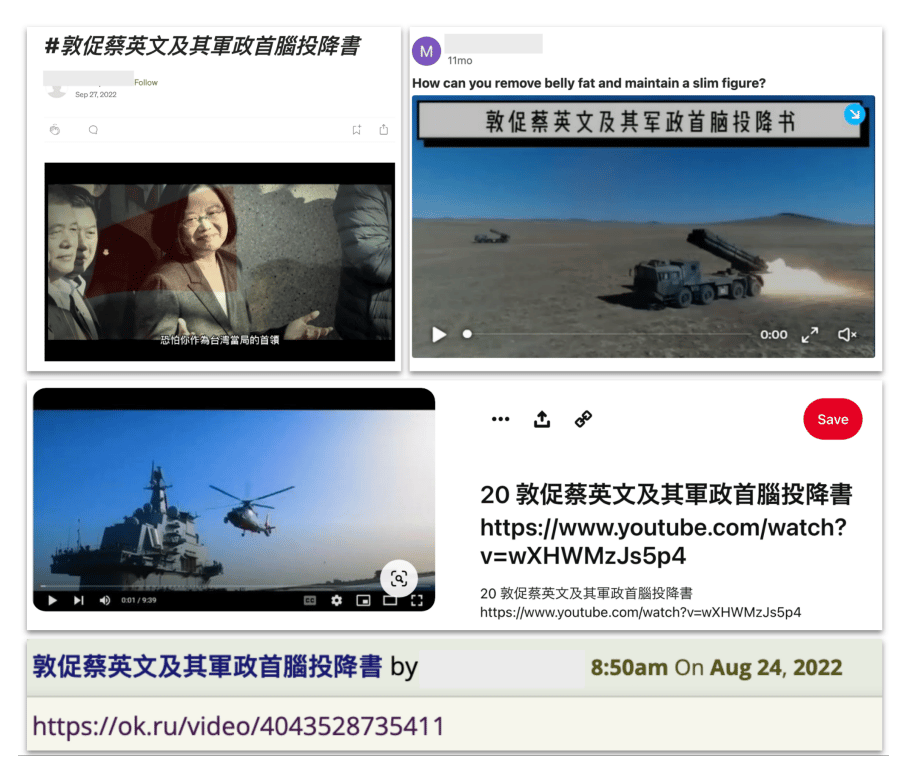
So what were these groups doing? According to Meta, they were posting across more than 50 sites, sharing links to articles, targeting figures such as a Chinese virologist named Yan Limeng, who has claimed that COVID was created in a Chinese lab, and New Yorker writer Jiayang Fan. More than one of the accounts tied to this network had over half a million followers, and the network was using spam farms based in countries like Vietnam and Brazil to spread its content. Meta said around $3,000 in ads were purchased to promote the accounts.
Music Videos And AI Feel Like A Fairly Decent Fit
First, lemme just factcheck the thumbnail: No, this is not the first AI music video. There are tons and I’ve spotted Stable Diffusion being used in recent music videos from bands like Bring Me The Horizon and The Front Bottoms.
That said, on a purely technical level, this music video is a pretty good showcase of where video-generating AI is currently at. There are tons of problems — the hands, the sketchy rendering of landscapes, the seemingly impossible task of not producing something that’s orange and blue. But it’s a lot better looking than similar projects from even six months ago.
But more broadly, I think music videos are a decent space to work with this kind of technology. Most music videos don’t really have to follow any kind of coherent plot aside from conveying an aesthetic that fits the music and, at this point, aesthetics are all these tools are capable of generating.
Also, while we’re on the topic, we’re finally starting to see some AI tools that use your own imagery, rather than an amorphous blob of Google Image Search data. I came across a tool called Cadmium, which colors your animation. You put in a sequence of line art with one colored keyframe and it colors the rest. Seems promising!
Dua Lipa Cooking Shrimp In New Video
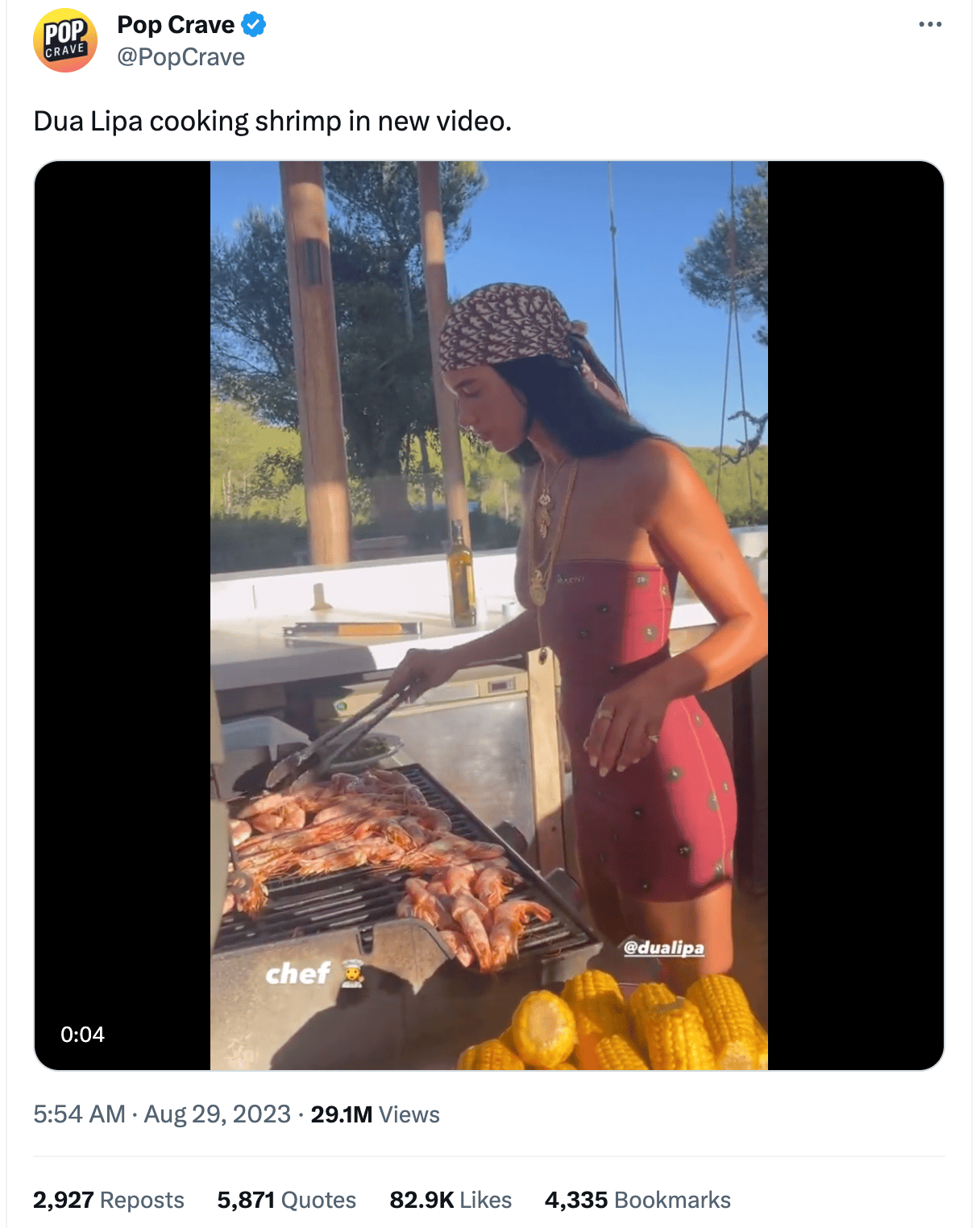
PopCrave, Gen Z’s Associated Press, shared a video of pop star Dua Lipa “cooking shrimp”. Many users have pointed out that, one, the shrimp aren’t seasoned, and, two, the grill does not appear to be actually turned on. She’s just sorta pushing raw shrimp around with some tongs. If you point this out, however, Dua Lipa fans will threaten to murder you.
The Nib Shuts Down This Week
There is a lot to be excited about in the world of independent media, particularly in journalism, with more seemingly stable journalist-run newsrooms popping up every day. The recently-launched 404 Media has already become my favorite tech news site. But, similarly, Dropout TV, a subscriber-supported streaming platform run by ex-College Humor employees is equally exciting. I even met a Dropout subscriber irl the other day and after talking through how they use the app, I think I finally get it.
That said, not every media sector has figured out how to grab subscribers. In fact, The Nib, the premiere destination for independent comics, is shutting down this week.
Matt Bors, the site’s founder, wrote a post about the end of The Nib’s 10-year run over on his newsletter. Bors went out of his way to state that his goodbye post isn’t about the popping of what he called, “the new media bubble of the 2010s,” but I think it’s notable that he recognizes that The Nib’s closure is tied to it. The Nib was funded by First Look Media, the digital media nonprofit that owns The Intercept, from 2016-2019.
What’s interesting — and frustrating — here is that digital media’s first real class of independent publishers were web comics. For better or worse, sites like PvP, Questionable Content, and Penny Arcade built the blueprint for how blogs would later morph into full-fledged media companies. And, ironically, comics are still the content type that’s most trapped inside of social platforms. Around 2012, sites like Facebook, Instagram, Tumblr, and Twitter started incentivizing images over text and the idea of a “comic” became forever intertwined with the idea of a “meme”. They’re all just images you post in a box somewhere. Which makes me think that finding out how to reinvent the web comic for the subscriber age will be harder than long-form video or text.
A YouTuber Made Attack On Titan ODM Gear
If you’ve never seen the anime Attack On Titan, the main characters fight giants by flying around on Spider-Man-esque wires they shoot out a device on their belts called ODM gear. It’s cool enough to make you forget that you’re watching a bunch of ultrantionalist propaganda. And a YouTuber named JLaservideo recently built a working prototype.
I went into this skeptical, grew more terrified as it went on, and left impressed.
There’s A Brian Jordan Alvarez Character Quiz
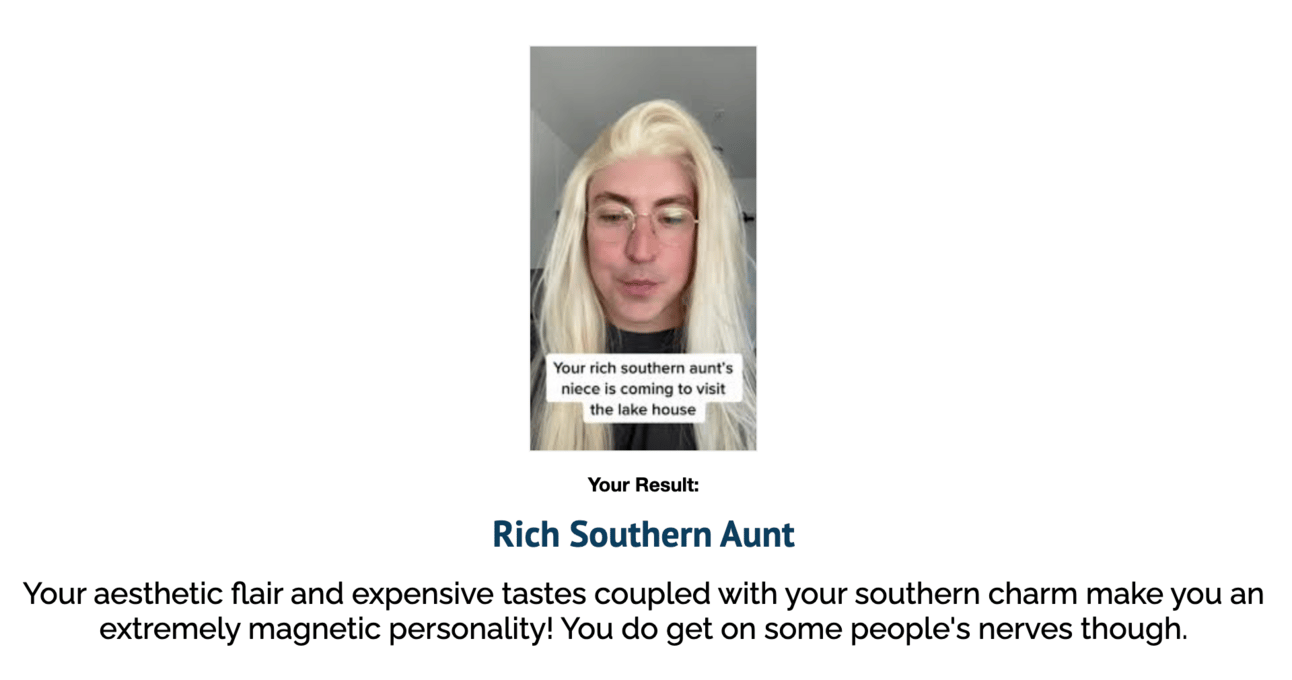
Brian Jordan Alvarez, an actor and comedian and the mastermind behind what I would argue is the most important web series ever made, The Gay And Wondrous Life Of Caleb Gallo, has a TikTok. It’s very good and he does a bunch of different characters on it. And someone, thankfully, made a quiz to find out what character you are. I got Rich Southern Aunt, which is exactly right.
I’m Doing Another Event In The UK This Month
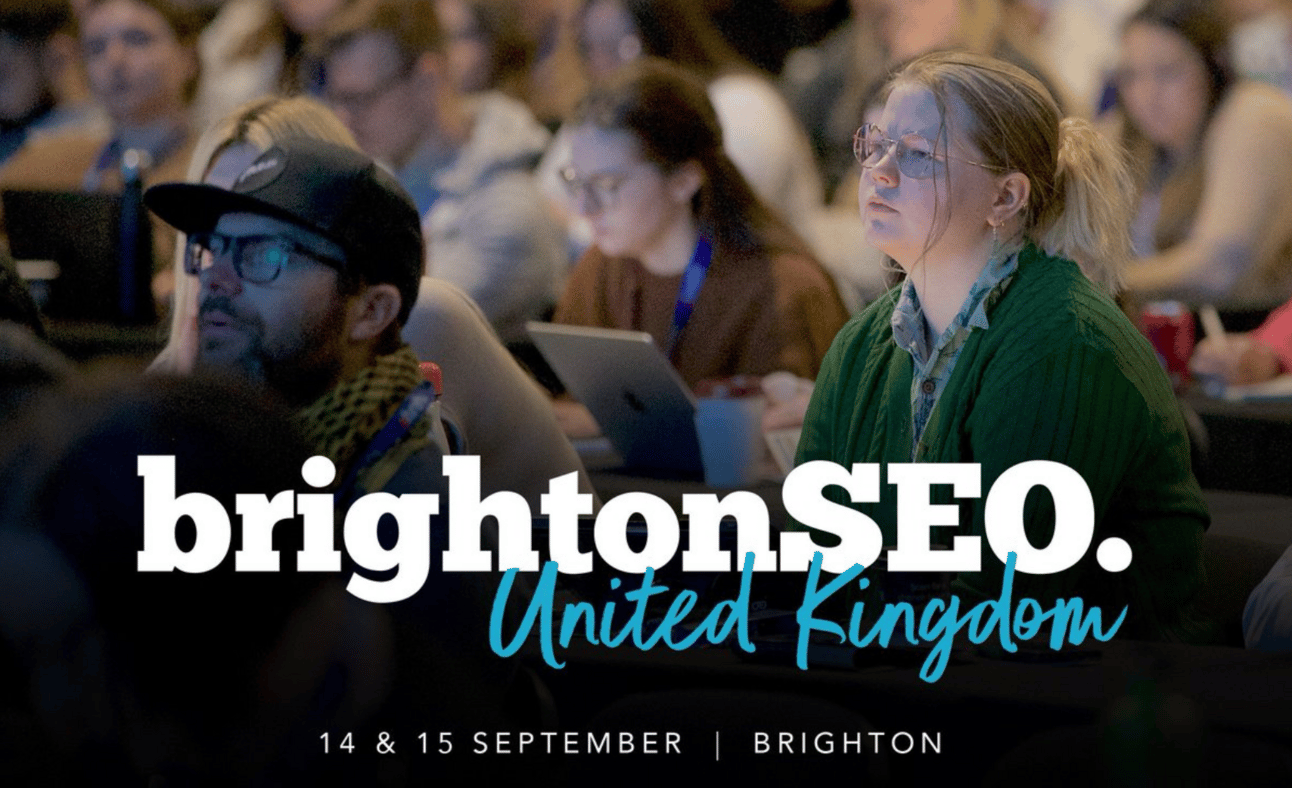
I’ll be talking about AI and memes at the BrightonSEO conference on September 14th and I’m also doing an after party down the street with Digital Void. See you there!
I’ve also finally created a page for all my live appearances, which I probably should have done six months ago.
Some Stray Links
P.S. here’s a good tweet.
***Any typos in this email are on purpose actually***